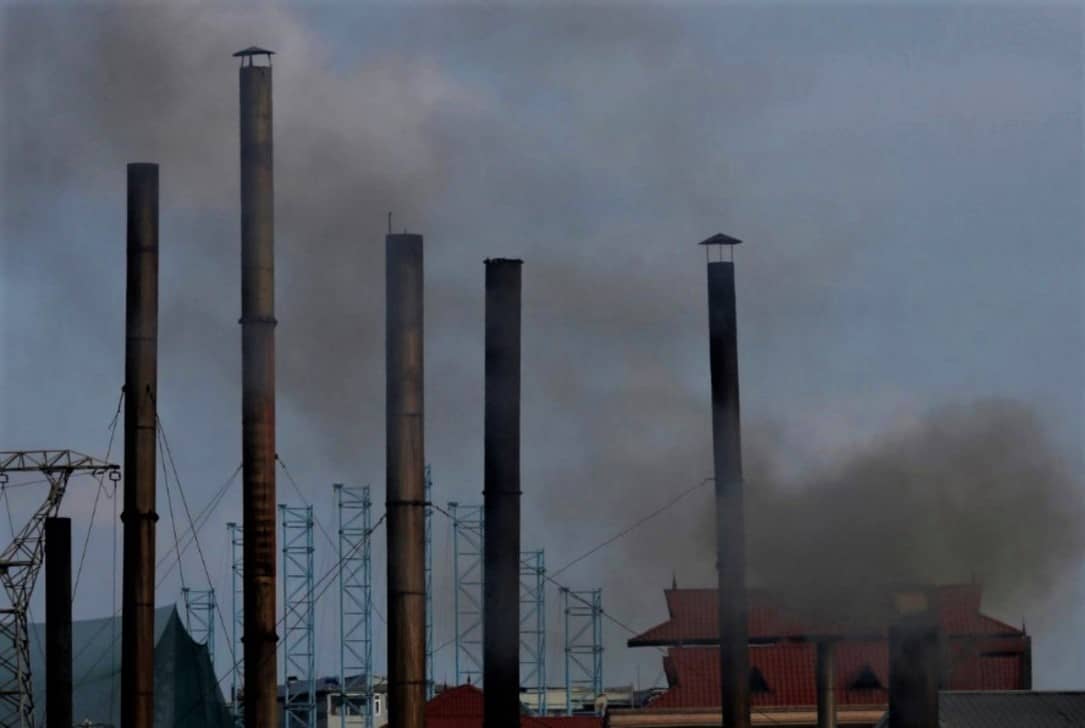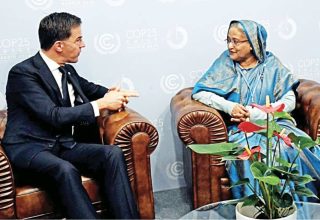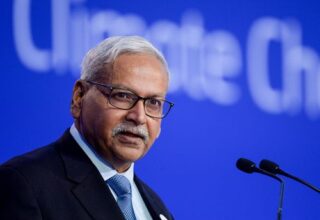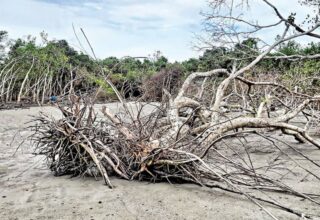
The Bangladesh parliament has declared a planetary emergency in a resolution adopted a few days ago. This is indeed a major initiative and the parliamentarians should be applauded for it. Although other countries’ parliaments—such as the United Kingdom—had declared climate emergency, Bangladesh is the first country to declare a planetary emergency.
The difference is that the notion of a planetary emergency includes both climate change as well as biodiversity and pollution concerns.
However, I am sure that the parliamentarians will agree that making such a declaration is not enough in itself and must be seen as the first step in tackling the problems that have risen to the level of an emergency.
However, a few things should be kept in mind by the policymakers and the concerned authorities while addressing this issue of planetary emergency.
Climate emergency is primarily a global emergency with very strong implications for Bangladesh, which is one of the most vulnerable countries to the adverse impacts of climate change. This has two dimensions for us to consider. The first is for us to do our best to reduce our own emissions of greenhouse gases that facilitates climate change. Even though our emissions are not significant we should nevertheless ensure that we minimise emissions from use of energy, transport and industries as well as enhance our tree plantation programmes.
However, the biggest climate emergency for Bangladesh is the fact that we are one of the most vulnerable countries to its adverse impacts, which will include more severe and frequent floods, more severe cyclones, more severe droughts and perhaps most importantly, salinity intrusion in the coastal zone due to sea level rise.
The good news in this front is that Bangladesh has been well aware of this problem for over a decade and has developed the Bangladesh Climate Change Strategy and Action Plan (BCCSAP) which has been implemented for nearly a decade and is now being revised to take it to 2030. Once the revised version is adopted it should become integrated into the 8th Five Year Plan as soon as possible.
The integration or mainstreaming of climate change into all national, sectoral and local plans should be the highest priority under the climate emergency implementation plan.
Another aspect of the climate emergency is the global one in which Bangladesh is among the most vulnerable countries and needs to play a more proactive leadership role at the Conference of Parties (COP) under the United Nations Framework Convention on Climate Change (UNFCCC). An important element in this strategy is to recognise that Bangladesh cannot simply speak for itself but must speak for all the vulnerable developing countries at the global meetings.
The upcoming 25th COP which will be held in Madrid, Spain in December will be a good opportunity for Bangladeshi parliamentarians to present their resolution and share how we plan to implement it.
The second planetary emergency is to do with protecting our biodiversity which includes both forests and aquatic species. Amongst the many issues to be concerned about is the protection of the Sundarbans, especially with the opening up of that region after the Padma Bridge is opened. This is something that the concerned Parliamentary Standing Committee should make a priority as once the damage is done it will be too late to rectify the situation.
Another area to take into account is the planned development of the eastern side of Dhaka city which is currently a major wetland area. If this development does not take a genuine nature-based development approach we will simply repeat the problems of waterlogging that we have to endure in the western part of Dhaka, which has been built by destroying the many wetlands that used to exist.
An important point to highlight in this regard is that simply having good legislation and laws to protect our biodiversity and natural environment is not enough as we have allowed the forces who have destroyed it to do so with complete impunity. So laws must be implemented and not just enacted.
The Parliamentary Standing Committee on Environment has an extremely important role to play in ensuring oversight of these laws by the ministries who are supposed to implement them.
The third and final area I will focus on is the pollution that is becoming a bigger and bigger problem around the country, ranging from the overuse of plastic to the problem of effluents from industries, such as textiles and ship-breaking. A more recent problem is the deterioration of air quality in Dhaka. This is another example of good laws being in place but with very poor implementation.
It is therefore essential to discuss the responsibility of the various departments or concerned bodies for implementing the planetary emergency plan. In addition, we need to identify and acknowledge our responsibility as conscious citizens and take necessary actions ourselves, from not polluting the environment and preventing others from doing so.
Originally this article was published on November 21, 2019 at Daily Star. The author Dr. Saleemul Huq is the director of the International Centre for Climate Change and Development (ICCCAD) at the Independent University, Bangladesh (IUB).
Email: saleemul.huq@icccad.net






